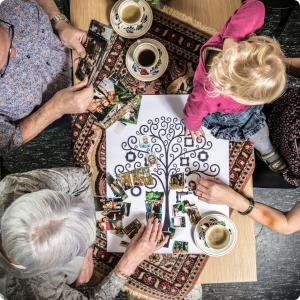Preventing Violence in Relations of Dependency and dealing with the consequences
The experience of physical or psychological violence can cause people serious harm – but if the victim is in some way dependent on the perpetrator, the impact is often even greater. The consequences can continue to touch the lives of victims, perpetrators and their loved ones – and even of generations to come. The Violence in Relations of Dependency research group investigates how we can reduce the impact of violence in dependency relationships, prevent repetition and help victims and potential victims put their own safety first.
There are all kinds of situations in life in which one person is dependent on another: children are dependent on their parents (in later life, the roles are often reversed), patients are dependent on healthcare professionals for their recovery, students need their lecturers to help them learn and grow. All of these are normal relationships, as long as both parties approach them responsibly. Sometimes, however, dependence leads to abuse of power, for example in the form of manipulation, coercion or violence. The mechanisms involved and the situations so created are often highly complex. By obtaining the best possible understanding of these processes, the research group seeks to contribute to the development of differentiated, methodical safety care for victims of violence.

Lines of research
The research focuses on three forms of violence in dependency relationships:
• Within families, including child abuse, honour-related violence, partner violence and elder abuse;
• By professionals and within institutions, for example in churches, care, the judicial system and education;
• People trafficking, including use of the loverboy technique and prostitution.

